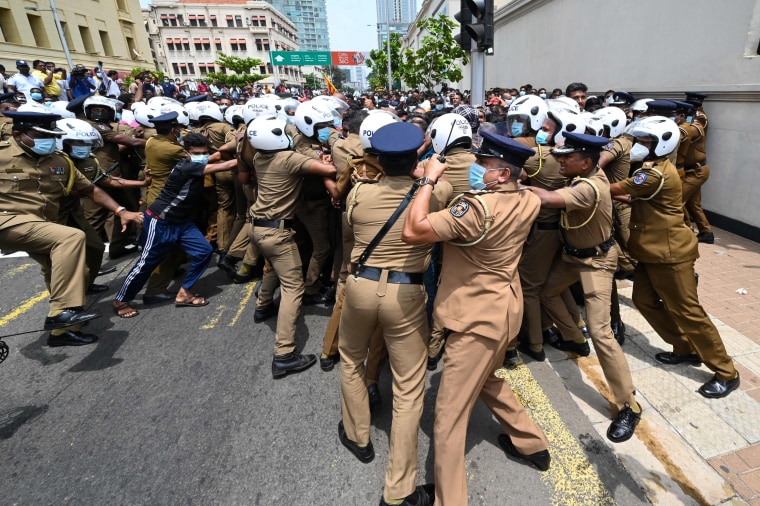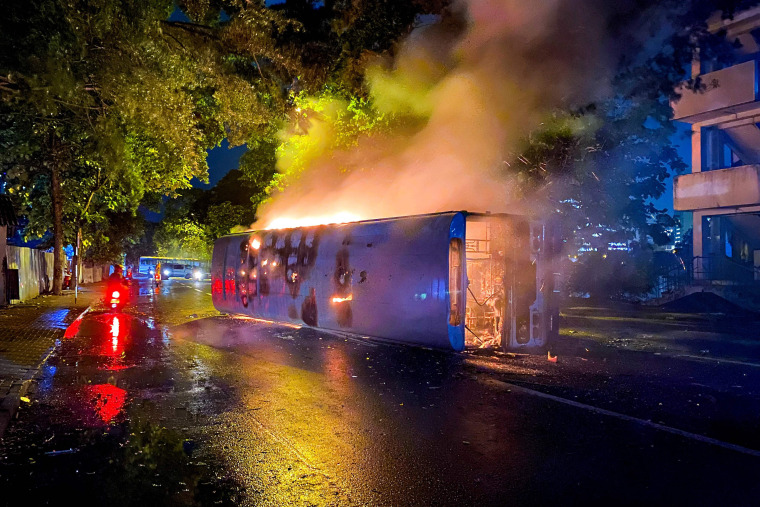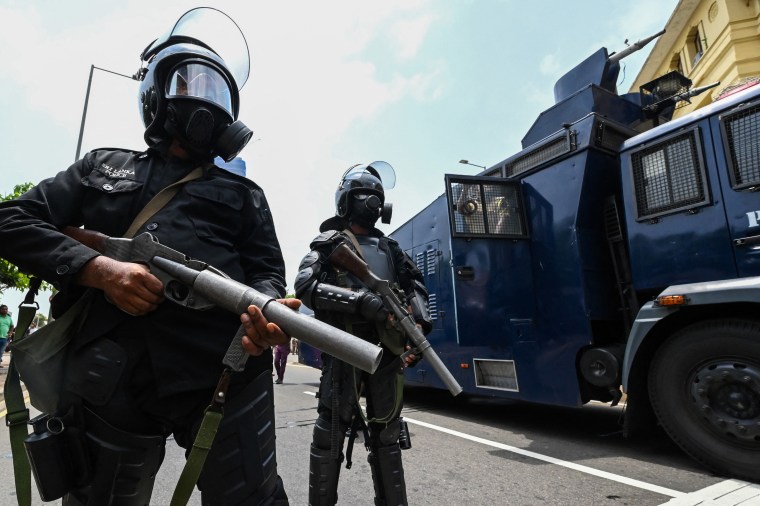COLOMBO, Sri Lanka — Defying a nationwide curfew in Sri Lanka, a few hundred protesters continued to chant slogans against the government Tuesday, a day after violent clashes saw the resignation of the prime minister who is blamed, along with his brother, the president, for leading the country into its worst economic crisis in decades.
Protesters swarmed the entrance to President Gotabaya Rajapaksa’s office in the capital, Colombo, for the 32nd day to demand that he follow in his brother’s footsteps and quit. The site outside Rajapaksa’s office has seen sustained crowds of thousands for weeks, but had dropped to a few hundred on Tuesday due to a strict curfew, following clashes on Monday that left four dead.
A government decree issued Monday night confirmed the resignation of Mahinda Rajapaksa, the prime minister.
Local television visuals showed the anti-government protesters shouting slogans for the president to resign and also rebuilding tents damaged in Monday’s attack.
The prime minister’s resignation came after violence erupted in front of the Rajapaksas’ offices as his supporters hit the protesters with wooden and iron poles. Authorities swiftly deployed armed troops in many parts of the country and imposed a curfew until Wednesday.

The ambush by the supporters set off immediate anger and chaos, as people started attacking ruling party politicians. More than a dozen houses belonging to ruling party leaders were vandalized and set ablaze.
At least four people, including a ruling party lawmaker, were killed and nearly 200 were wounded Monday night.
The South Asian island nation has been seething for more than a month, as protests have spread from the capital to the countryside. It has drawn people from across ethnicities, religions and classes and has even seen a marked revolt from some Rajapaksa supporters, many of whom have spent weeks calling for the two brothers to quit.
The pressure on President Rajapaksa to quit is mounting after his brother’s resignation, analysts say, and comes as the country’s economy has dramatically fallen apart in recent weeks.

Imports of everything from milk to fuel have plunged, spawning dire food shortages and rolling power cuts. People have been forced to stand in lines for hours to buy essentials. Doctors have warned of crippling shortages of life-saving drugs in hospitals, and the government has suspended payments on $7 billion in foreign debt due this year alone.
Download the NBC News app for breaking news and politics
Rajapaksa initially said the crisis wasn’t created by him, blaming global factors like the coronavirus pandemic battering its tourism industry and the Russia-Ukraine conflict pushing up global oil prices. But unable to escape the public anger, both he and his brother have since admitted to mistakes that exacerbated the crisis, including conceding they should have sought an International Monetary Fund bailout sooner.
In March, after citizens had been enduring critical shortages of fuel, cooking gas and medicine for months already, the president reached out to the IMF. Talks to set up a rescue plan are being held, with progress dependent on negotiations on debt restructuring with creditors. But any long-term plan would take at least six months to get underway.
